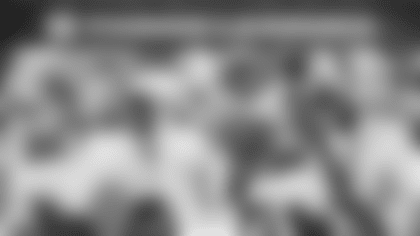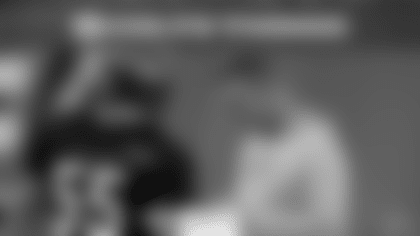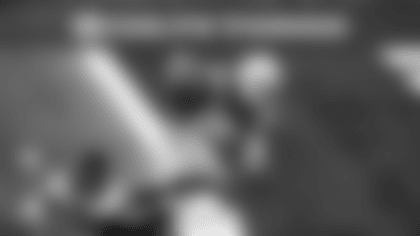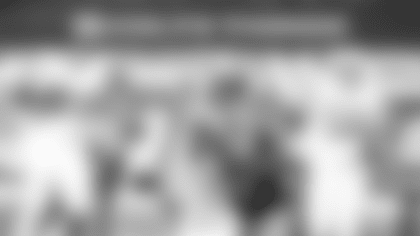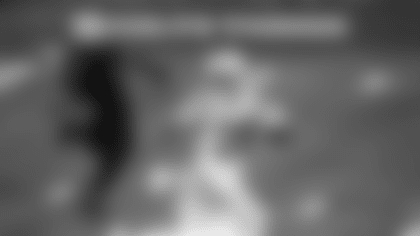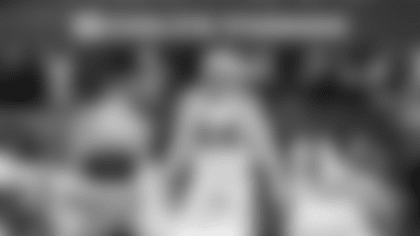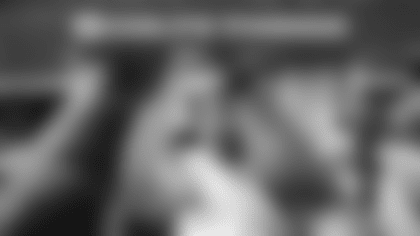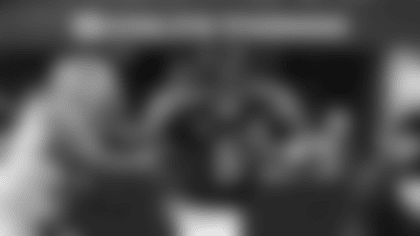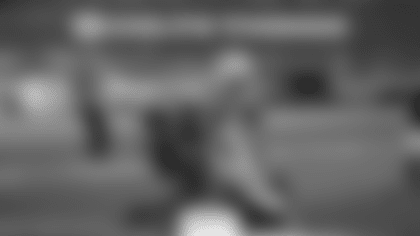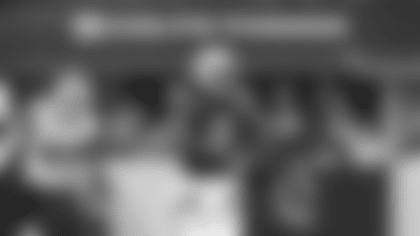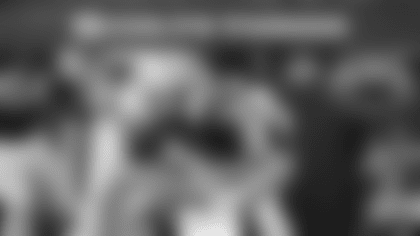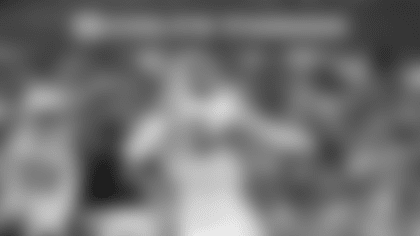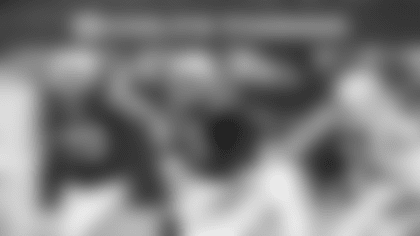1. Gardner Minshew took accountability for his four turnovers – which were a rarity for him.
Minshew threw a career high three interceptions and lost a fumble on a strip-sack, and the Jaguars turned those four turnovers into 17 points – which happened to be their margin of victory in a 37-20 result.
"They got some pressure, but at the end of the day, I was careless with the ball," Minshew said. "I didn't do a good enough job taking care of it. I put our team in a really bad spot, you know, and it's not fair to the rest of the guys, so I'm really going to look at those, hold myself accountable. We're not going to tuck our tail. We're not going to drop our chin. We're just going to keep pushing through and learn from it and we'll come out the other side better."
For some context here: Sunday was Minshew's 31st game in which he either started or attempted at least 14 passes. It was his first game with three interceptions, and only his fourth game throwing multiple picks. And he's still one of six quarterbacks in NFL history to attempt at least 1,000 passes with an interception rate of 1.7 percent or lower:
| Player | Pass attempts | Interception% |
|---|---|---|
| Aaron Rodgers | 7,661 | 1.4 |
| Jacoby Brissett | 1,577 | 1.5 |
| Tyrod Taylor | 1,601 | 1.6 |
| Justin Herbert | 2,111 | 1.7 |
| Patrick Mahomes | 3,217 | 1.7 |
| Gardner Minshew | 1,071 | 1.7 |
So the Colts left Jacksonville disappointed in the loss, but not lacking confidence in Minshew – who will start at least the next three games with Anthony Richardson on injured reserve.
"I respect him a lot," wide receiver Josh Downs said. "He's a great dude. I know he's gonna come back next week and play really good. I'm excited to see what he does, I'm excited to see what the team does."
2. The Jaguars had success by playing their base personnel no matter who was on the field for the Colts.
Defenses, usually, match their personnel to what the offense's personnel. As in: If an offense is in 11 personnel (with three wide receivers on the field), a defense will match it by playing nickel (with three cornerbacks on the field).
The Jaguars, though, kept their base defense – with four defensive backs (two cornerbacks, two safties) – on the field for 37 of 78 plays on Sunday, per Pro Football Focus. On those 37 plays, the Colts ran the ball 12 times for 21 yards (1.8 yards/attempt) and had 25 passing plays, with Minshew being sacked twice and completing 15 of 23 passes for 125 yards (5.4 yards/attempt).
As the Jaguars grew their lead to 21-6, the Colts averaged 2.5 yards per play against Jacksonville's base defense, which was on the field for about half of the snaps. And when the Jaguars were in base and the Colts were in 11 personnel, the Colts totaled 14 yards on eight plays: Three rushes for nine yards, and 2/5 passing for five yards.
"The played base defense against us all day whether we were in our big personnel or our sub personnel. They probably did that to alleviate double teams, not let us get to the second level. We just gotta find ways in the future to be better at that.
This is a granular way of explaining, then, why the Colts weren't able to establish the run on Sunday. By playing base defense, the Jaguars limited the Colts offensive line's ability to double-team defensive linemen and climb to the second level to open up lanes for Zack Moss or Jonathan Taylor to turn into explosive plays. The risk for a defense is getting burned through the air without matching cornerbacks to wide receivers, leading to more single-high safety looks and opportunities to throw deep outside the numbers.
Minshew, though, attempted one deep ball (20+ air yards) in the first half – an incompletion intended for wide receiver Alec Pierce early in the second quarter.
"They did a good job," Minshew said. "I thought they had a good plan. They were base 11 for a lot of it, so some tough matchups from the ball so when they do that, we do have to make them pay outside and, you know, I think personally we'll all take that personally as a challenge and I think we'll respond right away."
And by the time the Colts exited the visiting locker room at EverBank Stadium after halftime, they had to pass the ball to try to erase the Jaguars' lead, resulting in Minshew attempting a career high 55 passes.
"We were running a little bit, throwing it on pass situations a little bit there and they got some turnovers there," Steichen said. "We were trying to get back in it with some of the passes and that's how it played out today."
3. The Colts were boom or bust defending early downs.
The Jaguars scored four touchdowns, and each of the possessions that led to those scores were sparked by efficiency on first down (including Travis Etienne Jr.'s 22-yard touchdown run one play after Minshew lost a fumble on a strip-sack).
On those four possessions, the Jaguars averaged 8.7 yards per play on 12 first downs. On Jacksonville's other eight possessions (excluding end-of-half kneel downs), the Colts held the Jaguars to 3.0 yards per play on first down – and four of those drives ended with a punt, one with a JuJu Brents interception and three with a field goal. Those three field goals were the result of advantageous field position, not the Colts' defensive giving up yards (the Jaguars gained a total of one yard on 12 plays on those three drives).
"That was a key thing when we came into the second half," Buckner said of slowing the Jaguars on early downs. "We gotta get them behind the sticks to create those third and long opportunities for us so that we can cause some pressures and get after them a little bit."
The Colts held the Jaguars to just four of 14 (29 percent) on third down, and overall kept Jacksonville to 233 yards of total offense. Buckner and defensive ends Samson Ebukam and Tyquan Lewis all had sacks, while cornerback Kenny Moore II had three tackles for a loss.
4. Jonathan Taylor's snap count went up.
The Colts ramped up Taylor's workload in practice last week, leading to this breakdown of running back snaps in Week 6:
- Zack Moss (39 snaps)
- Jonathan Taylor (33 snaps)
- Trey Sermon (7 snaps)
Taylor carried eight times for 19 yards, and was on the field for 25 passing plays. He caught five of six targets for 46 yards, with the majority of those yards coming on a well-designed and well-executed catch-and-run Taylor took for 40 yards in the second quarter.
The Colts remain confident in their backfield even though Moss and Taylor combined for 40 yards on 15 carries – which goes back to the Jaguars playing base defense to stop the run – and will continue to increase Taylor's usage in the offense going forward.
"He's ramping up, he's going to continue to ramp up each-and-every week," Steichen said.
5. The Colts' O-line depth continued to be solid.
Bernhard Raimann returned at left tackle after missing two games with a concussion, but right tackle Braden Smith (foot/wrist/hip) missed Sunday's game. That meant fourth-round rookie Blake Freeland shifted over to right tackle and started his third consecutive game; he earned a 75.4 Pro Football Focus grade, for what it's worth.
Zooming out, the Colts have now asked two inexperienced players – Freeland and center Wesley French – to start in four of their six games this season. And for the most part, the Colts' offensive line has held strong while cycling in those depth guys.
In Freeland's case, the Colts drafted him this spring with the plan to make him their swing tackle in 2023. He's fit that role well so far, starting on both the left and right sides of the offensive line.



